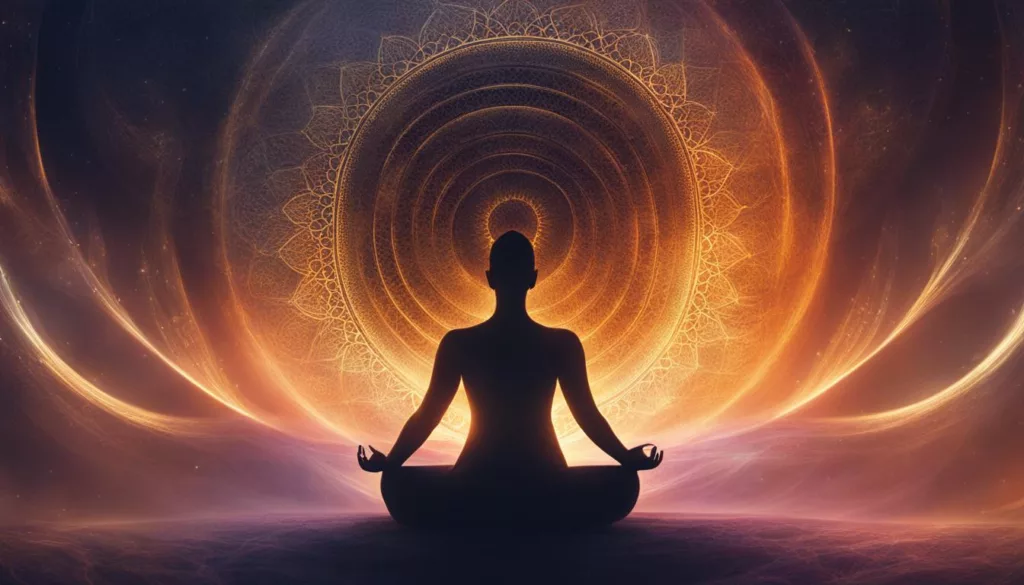Is Yoga a Religion? Our Exploration and Insight
Welcome to our exploration of the relationship between yoga and religion. Many people wonder whether yoga is a religion or simply a spiritual practice. In this article, we will delve into the topic and provide insight into the diverse perspectives surrounding yoga’s connection to religious beliefs, spirituality, and personal belief systems. So, let’s embark on this enlightening journey together!
Key Takeaways:
- Yoga is not an organized belief system and does not require any particular faith or religious rituals.
- While some practitioners see yoga as a spiritual practice, it does not require adopting Hinduism, the religion from which it originated.
- Yoga can deepen existing faith or add new depth to religion, rather than conflicting with any existing beliefs.
- Yoga is a holistic practice that encompasses physical, mental, and spiritual dimensions.
- The intersection of yoga, religion, and spirituality can be complex, but yoga can be adapted to support various belief systems.
Now that we have a brief overview of what lies ahead, let’s dive deeper into the fascinating realm of yoga, spirituality, and religion!
Yoga and Spirituality: Exploring the Correlation
When we think of yoga, we often associate it with physical postures and breathing exercises. However, yoga is much more than just a physical practice – it has a deep connection to spirituality. Yoga provides a pathway to explore and cultivate our spiritual selves, offering a profound journey of self-discovery and inner growth.
The practice of yoga encourages us to connect with the present moment, to become aware of our thoughts and feelings, and to develop a sense of inner calm and stillness. Through regular practice, we learn to quiet the mind and find a sense of peace within ourselves. This inner peace is often described as a spiritual experience, as it goes beyond the physical realm and taps into something deeper.
The Spiritual Benefits of Yoga
Yoga offers numerous spiritual benefits, including:
- Self-Understanding: Through yoga, we gain insight into our thoughts, emotions, and patterns of behavior. This self-awareness allows us to make conscious choices and align our actions with our spiritual values.
- Connectedness: Yoga teaches us to cultivate a sense of connectedness – not only with ourselves but also with others and the world around us. We realize that we are part of a greater whole, and this understanding fosters a sense of unity and compassion.
- Spiritual Growth: By deepening our connection with ourselves and the world, yoga provides a fertile ground for spiritual growth. It encourages us to explore our beliefs, values, and purpose, leading to a greater understanding of ourselves and our place in the universe.
The Beauty of Spirituality in Yoga
“Yoga is not just a workout; it is a work-in.” This quote beautifully encapsulates the essence of spirituality in yoga. While yoga is accessible to anyone, regardless of their religious beliefs, it offers a unique space for those seeking a spiritual connection. Through the integration of breath, movement, and mindfulness, yoga becomes a journey of self-discovery, self-acceptance, and self-transformation.
“Yoga is the journey of the self, through the self, to the self.” – The Bhagavad Gita
Yoga allows us to explore our inner landscapes, shedding light on our true nature and potential. It invites us to dive deeper into ourselves, to peel away the layers of conditioning, and to connect with our authentic selves. This journey of self-exploration is inherently spiritual, as it uncovers the timeless wisdom and divinity within each of us.
In conclusion, yoga and spirituality are intimately intertwined. While yoga is not a religion, it provides a sacred space for spiritual exploration and growth. Through the practice of yoga, we embark on a journey of self-discovery, self-understanding, and self-transcendence, finding deeper meaning and purpose in our lives.

Yoga as a Holistic Practice: Physical and Spiritual Dimensions
Yoga is a holistic practice that encompasses both physical and spiritual dimensions. Its teachings emphasize the unity of mind, body, and spirit, promoting a deep connection with oneself and the world around us. Through various yoga poses and practices, practitioners can experience not only physical flexibility and strength but also a profound sense of inner peace and harmony.
The physical benefits of yoga are well-known. Regular practice can improve strength, flexibility, and balance, and help to alleviate physical ailments such as back pain and joint stiffness. But beyond the physical, yoga offers a unique opportunity to cultivate a mind-body-spirit connection. It invites us to explore the deeper aspects of our being, tapping into our inner wisdom and nurturing our spiritual growth.
“Yoga is not just about standing on the mat and twisting our bodies. It is about finding our true selves and awakening our inner spirit.”
Through yoga, we learn to unite our physical body, breath, and mind, creating a state of harmony and balance within ourselves. This unity extends beyond our individual self, as we recognize our interconnectedness with the world and the higher power. Yoga provides a pathway for self-discovery and self-realization, allowing us to tap into our inner strength and wisdom.
The Mind-Body-Spirit Connection in Yoga
The mind-body-spirit connection is at the heart of yoga. It reminds us that we are not just physical beings but also spiritual beings having a human experience. By bringing awareness to our breath, movement, and thoughts during yoga practice, we can cultivate a deeper understanding of ourselves and our place in the universe. This connection allows us to access a sense of peace and stillness, transcending the limitations of the physical world.
| Physical Benefits of Yoga | Spiritual Benefits of Yoga |
|---|---|
| Improved flexibility and strength | Enhanced self-awareness |
| Relief from stress and anxiety | Deepened sense of purpose and meaning |
| Increased energy levels | Expanded consciousness |
| Boosted immune system | Connection with higher power or divine energy |
As we continue to explore the physical and spiritual dimensions of yoga, it is important to approach our practice with openness and curiosity. Each individual’s journey is unique, and what resonates with one person may not resonate with another. By honoring our own experiences and understanding, we can embrace the transformative power of yoga and integrate its teachings into our daily lives.

When exploring the intersection of yoga, religion, and spirituality, it is important to understand that yoga itself is not a religion but a practice that can be adapted to various belief systems. Yoga can be approached as a secular activity, focusing on the physical and mental benefits it offers, without any religious connotations. However, concerns about yoga and religion often arise due to certain spiritual elements, such as meditation and chanting, that are associated with specific religious traditions.
In the context of teaching yoga in schools, it is essential to navigate these intersections mindfully and respect the diverse religious beliefs of students. While yoga can be introduced as a way to promote physical fitness, stress reduction, and mindfulness, it is crucial to avoid conflicting with the religious ideas being taught at home. By adapting yoga to different belief systems and emphasizing its universal aspects, we can ensure that it complements and enhances existing religious practices rather than contradicting them.
“Yoga is like a spiritual journey that helps me connect with my inner self and find peace and clarity. It doesn’t conflict with my religious beliefs, but rather deepens my connection with God.” – Sarah, a yoga practitioner with Christian faith.
The practice of yoga can be an individual and personal experience, allowing practitioners to explore their spirituality within their own belief system. It can serve as a tool for self-discovery, self-reflection, and inner growth. Yoga’s holistic nature, emphasizing the unity of mind, body, and spirit, can foster a deeper sense of connection and meaning in one’s life, regardless of religious affiliation.

Adapting Yoga to Different Belief Systems
One of the strengths of yoga is its adaptability to different belief systems. By focusing on the physical aspects, such as flexibility and strength, yoga can be embraced by individuals of all backgrounds. Introducing breathwork and mindfulness techniques can help cultivate a sense of inner peace and well-being, without delving into religious or spiritual realms.
For those who wish to incorporate spiritual elements into their yoga practice, such as meditation or the chanting of mantras, it is essential to provide options that are inclusive and respectful of diverse faiths. This can include offering different variations or alternatives to ensure that each individual can participate according to their own beliefs and comfort level.
| Yoga and Religion | Yoga and Spirituality |
|---|---|
| Yoga poses symbolize elements from nature and ancient Indian mythology. | Yoga fosters a sense of connectedness and inner peace. |
| Certain yoga practices involve the invocation of deities or spiritual entities. | Yoga can serve as a tool for self-exploration and personal growth. |
| Yoga philosophy encompasses ethical principles and guidelines for virtuous living. | Yoga encourages self-awareness and self-transformation. |
Overall, the relationship between yoga, spirituality, and religion is complex and multifaceted. While yoga can be a spiritual practice for many, it is not inherently tied to any specific religious beliefs. By acknowledging and respecting the intersections between yoga and different belief systems, we can promote inclusivity, understanding, and personal growth through the practice of yoga.
Conclusion
In summary, yoga is not a religion but a spiritual practice that can be embraced by individuals from all walks of life. It does not require specific religious beliefs and can be tailored to support various faiths. Yoga’s holistic approach, focusing on the unity of mind, body, and spirit, allows practitioners to deepen their connection with themselves and the world around them.
The relationship between yoga, spirituality, and religion is multifaceted and varies among practitioners. While some may view yoga as a means to augment their existing religious beliefs, others may find it to be a standalone path that cultivates inner peace and self-discovery. Yoga’s spiritual dimension encompasses practices such as meditation and energy awareness, which can foster a sense of connectedness with something greater than oneself.
As we navigate the intersections of yoga, religion, and spirituality, it is crucial to respect diverse belief systems. Yoga can be practiced in secular settings, such as schools, emphasizing its physical and mental benefits without imposing specific religious tenets. However, it is essential to be mindful of incorporating elements that may align more closely with certain religious traditions, ensuring that the teaching of yoga does not conflict with the religious values being taught at home.
In conclusion, yoga offers a personal journey that supports spiritual growth and the development of one’s own belief system. Its inclusive nature allows individuals to deepen their faith, find meaning in their lives, and foster a harmonious integration of mind, body, and spirit. Whether as a complement to existing religious practices or as a stand-alone spiritual pursuit, yoga has the potential to lead us towards a more balanced and fulfilling life.
FAQ
Is yoga a religion?
No, yoga is not a religion. It is a holistic practice that can be adapted to support various faiths or be practiced in a secular context.
Can yoga be a spiritual practice?
Yes, many people find yoga to be a way to cultivate spirituality. While it does not require specific religious beliefs, it can deepen existing faith or add new depth to religion.
Does yoga require adopting Hinduism?
No, yoga does not require adopting Hinduism, the religion from which it originated. It is open to everyone, regardless of religion or culture.
What is the relationship between yoga and religion?
The relationship between yoga and religion can be complex. While yoga itself is not a religion, certain spiritual elements like meditation and chanting may be associated with specific religious traditions.
Can yoga be taught in schools without conflicting with religious beliefs?
Yes, yoga can be taught in schools and other public settings as a physical and mental practice without overt religious connotations. However, it is important to be mindful of respecting different religious beliefs and not conflicting with what is being taught at home.
How can yoga support spiritual growth?
Yoga’s holistic nature promotes the unity of mind, body, and spirit, allowing individuals to deepen their connection with themselves and the world. It can be a personal journey that supports spiritual growth and the development of one’s own belief system.






